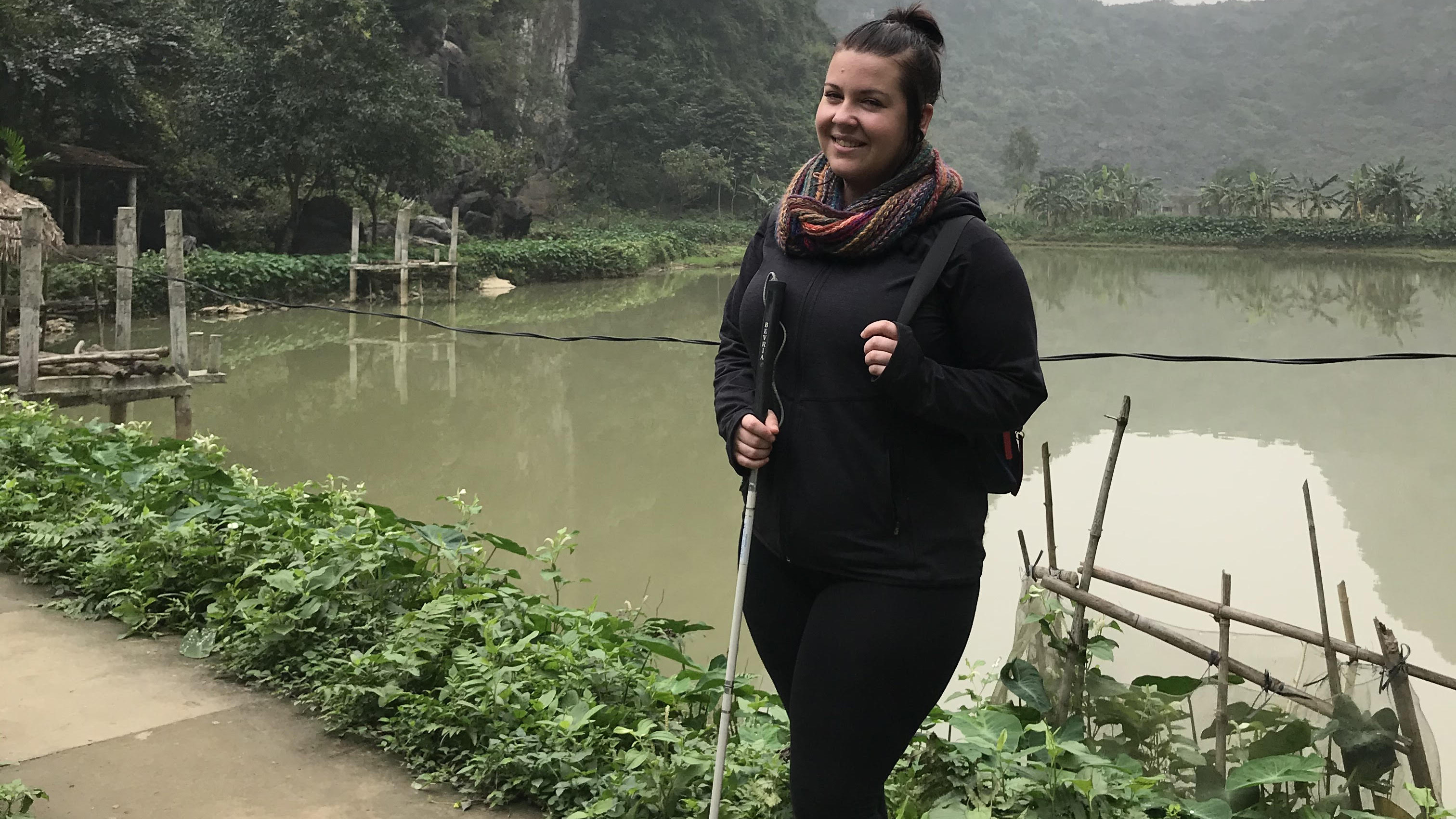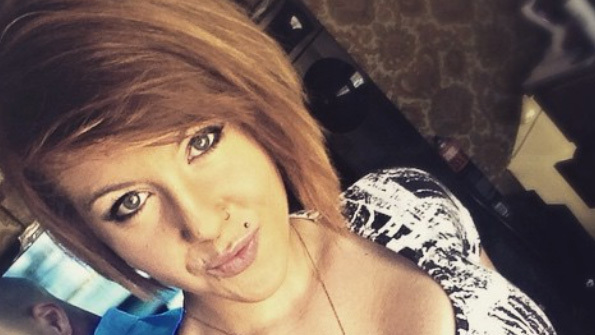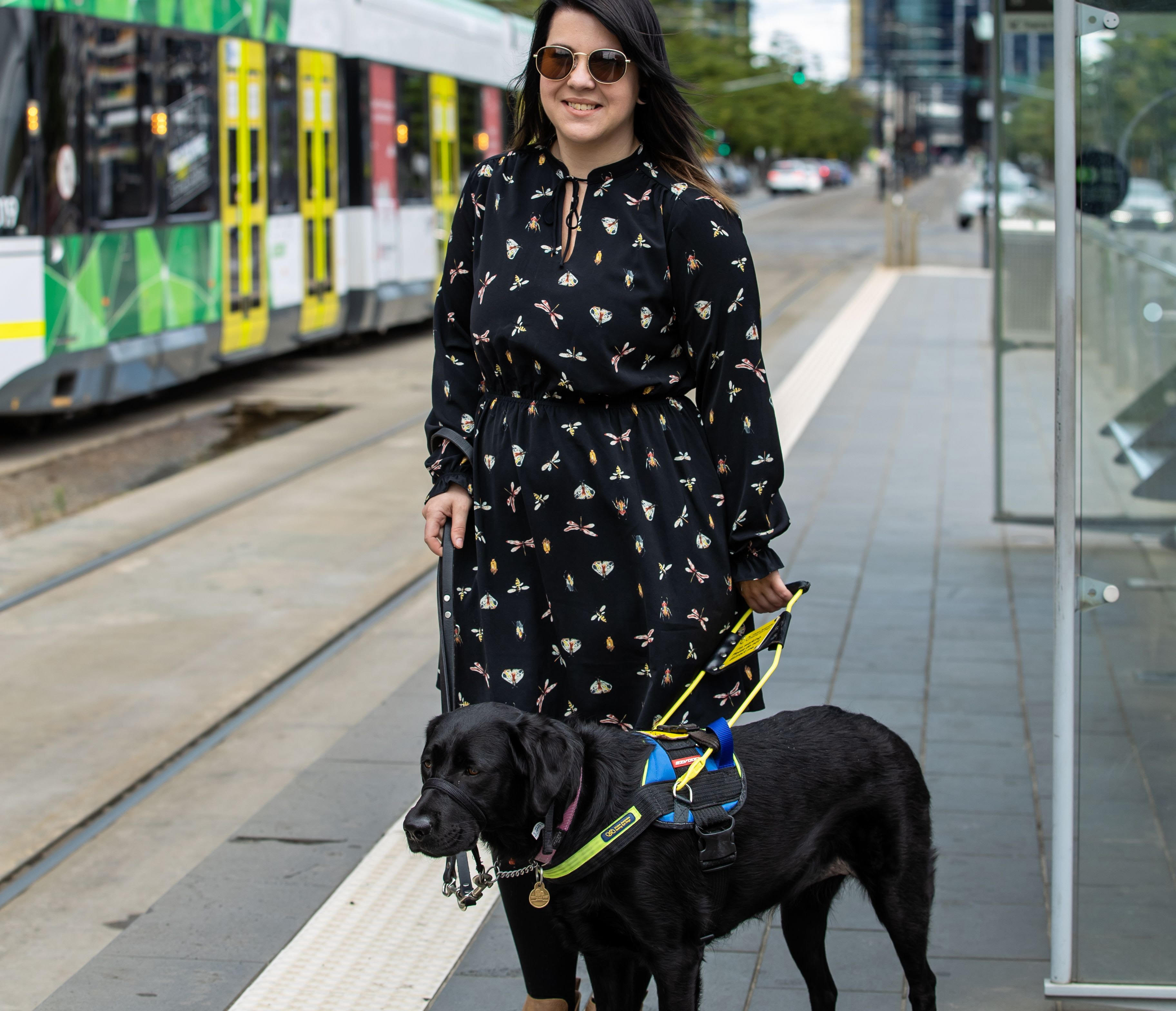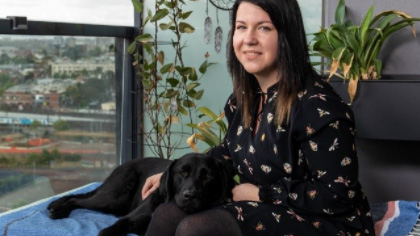When hairdresser Brittnee Watson first noticed a black "blob" across her vision, she thought it was stray mascara which had dropped into her eye.
"I scrubbed my face for half an hour and I couldn't get rid of it," the 28-year-old said.
Ms Watson, from Melbourne, rushed to an optician.
READ MORE: What we know about the BA.2 'stealth' Omicron variant

However, the medic wasn't welcoming.
Ms Watson has type one diabetes - which can lead to vision loss.
According to the Australian Bureau of Statistics, one in 20 Australians had diabetes in data recorded between 2020 and 2021.
Type two was the most common, representing 85.5 per cent of all cases, followed by Type one with 11 per cent.
Ms Watson admitted she hadn't been taking care of her health as she should have.
The doctor sent her away.
"He said, 'I'm not going to waste my time until you start looking after your diabetes,'" she said.
She went to hospital where doctors and nurses were kinder.
They told her she had macular degeneration - which usually affects older people - and diabetic retinopathy.
"Macular degeneration is the deterioration of the central vision, so this is very prominent in anybody over the age of 80," she said.
"Diabetic retinopathy is when the blood vessels that form behind your eye because there's not enough blood flow burst."
And while Ms Watson was given treatment, her sight couldn't be saved.
Just a few months later, on Australia Day 2017, she woke up with no sight at all.
She was just 22.
READ MORE: Stage-four breast cancer survivor broke down in tears at budget news

"It was a lot faster than what they thought," she said.
The rapid deterioration meant she he had to stop driving, move home, and give up her job in a salon.
She admits she "locked herself in the house" for a week.
However, while that was tough, Ms Watson told 9news.com.au her life is now entirely positive.
She said losing her vision made her learn to look after her health and give up her previously wild lifestyle.
Thanks to Vision Australian, she's learned to use the array of equipment now available to help people with vision loss.
She has seeing eye dog, Kuma, a job working for an allied health service and has bought an apartment with her partner, Paul.
READ MORE: 'Thousands of lives will be lost': Disappointment at budget cancer snub

She does most of the things other people her age do, such as catching up with friends and visiting cafes - with the help of Kuma and Google Maps on her phone.
She also hopes to start playing blind Australian Rules football too.
"For me, it's so easy to look at the downsides, but if you push through and look at the positives, vision loss isn't a barrier, it's a speed hump," she said.
Now, Vision Australia has launched a campaign to show people living with blindness or low vision doesn't have to be a barrier to full and active life.
The organisation says studies have shown the number of Aussies with no or low vision will reach more than 500,000 by 2030.
Currently 131,000 Aussies are partially or fully blind, according to the Australian Institute of Health and Welfare.

Karen Knight, general manager of client services for Vision Australia, helps people cope with losing their sight.
"We connect them with other people going through similar experiences to hep them recognise there is plenty more fulfilling life ahead," Ms Knight said.
"The biggest far is of their isolation, that they won't be able to do the things that they could before.
"People really do fear loneliness and can be lonely, until they learn the skills from our mobility instructors."
Contact journalist Sarah Swain: sswain@nine.com.au
